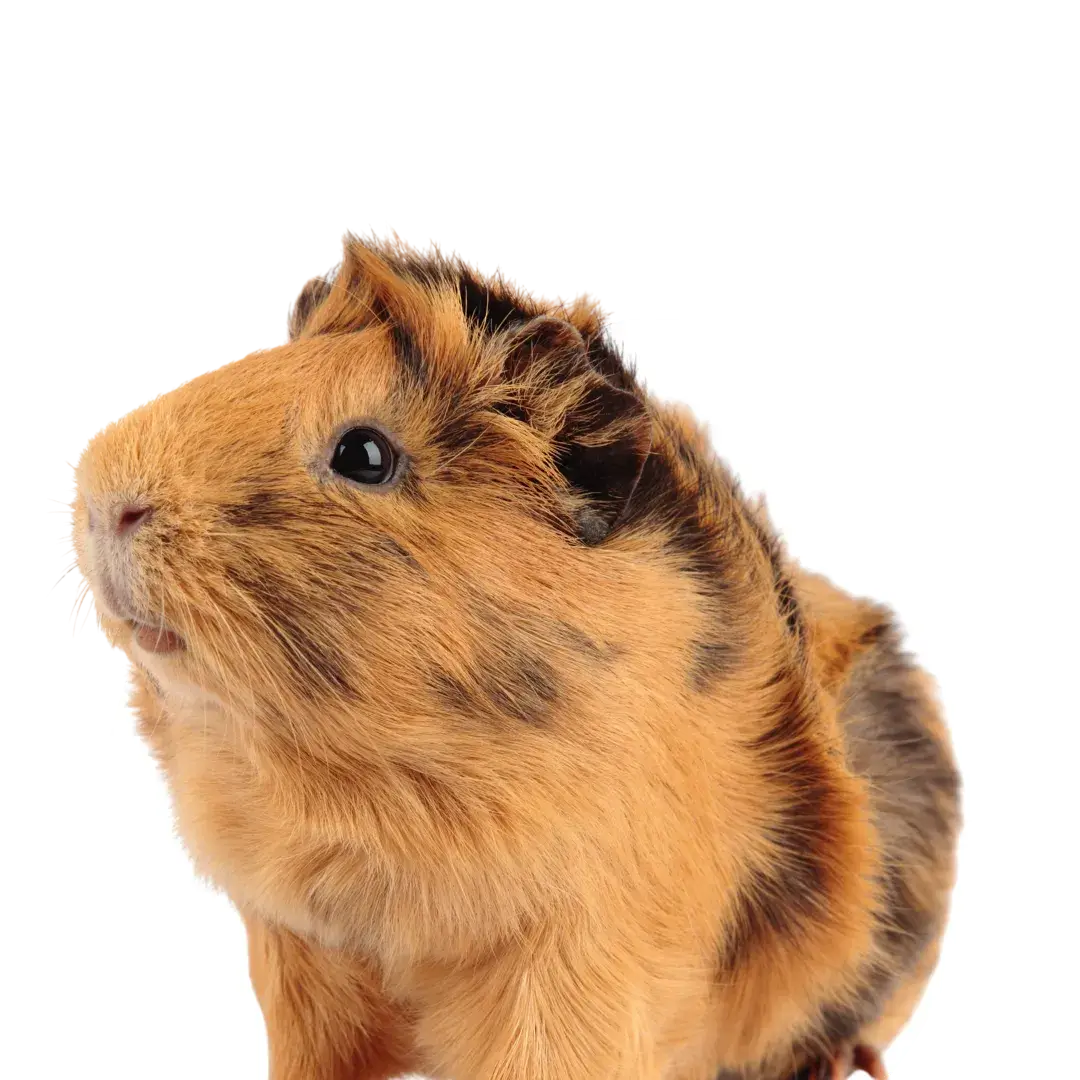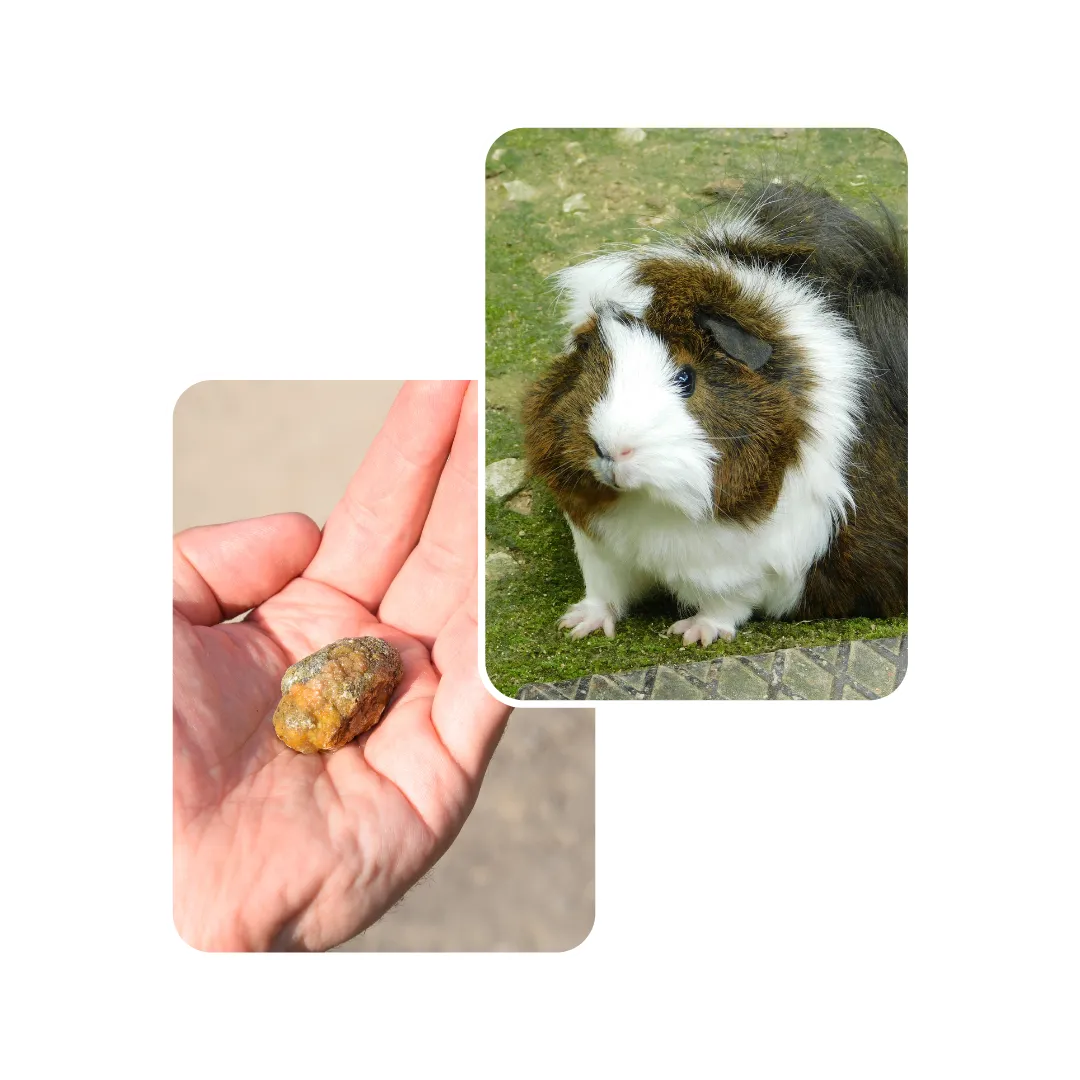
Bladder stones develop when urine becomes too concentrated with minerals such as calcium, magnesium or phosphates. In guinea pigs, diet plays a huge role. Too many calcium rich foods, such as alfalfa hay, spinach, or certain leafy greens, can overload the urinary system. Dehydration makes the problem worse, since less water dilutes the urine. Chronic urinary infections also change the pH of urine, encouraging stones to form. Genetics may also play a role, meaning some guinea pigs are naturally more prone than others.

Guinea pigs with bladder stones often squat for long periods in their litter or bedding but only pass a few drops of urine. They may look uncomfortable or restless while doing so.
Red, pink or rusty colored urine is one of the most obvious warning signs. Sometimes the blood is only visible as spots in bedding or when the urine dries.
Constant dribbling or leaking urine keeps the fur wet, causing skin irritation and a strong smell.
If the bladder is blocked, the belly can feel swollen or hard to the touch. This is a critical emergency sign.
Squeaks or cries during urination are a clear sign of pain and should never be ignored.
Instead of normal, steady urination, guinea pigs with bladder stones may pee very often but in tiny amounts. This happens when stones partially block the bladder.
Many guinea pigs with bladder stones sit hunched, avoid movement and stop playing or running on their wheel. They may look like they are “guarding” their belly from pain.
They are hard lumps of minerals, mostly calcium, that form inside the bladder. They irritate the bladder lining, cause pain and can block urine flow.
Look for straining, squeaking when urinating or blood in the urine. Wet fur around the tail area and strong-smelling urine are also red flags.
They grow larger, cause severe pain and may block the bladder completely. This can lead to death within 1–2 days if untreated.
Most cases need surgery to remove the stones. Vets may also prescribe antibiotics, pain relief and dietary changes to prevent new stones.
Prevention is possible by feeding low-calcium hay, providing clean water, avoiding mineral blocks and maintaining cage hygiene.
You can click the Appointment button on our website or walk to our vet directly. Booking early ensures your guinea pig gets treatment without waiting in discomfort.
Your pet deserves expert care – Subscribe now for trusted tips and updates from our pet experts.
